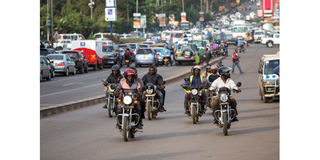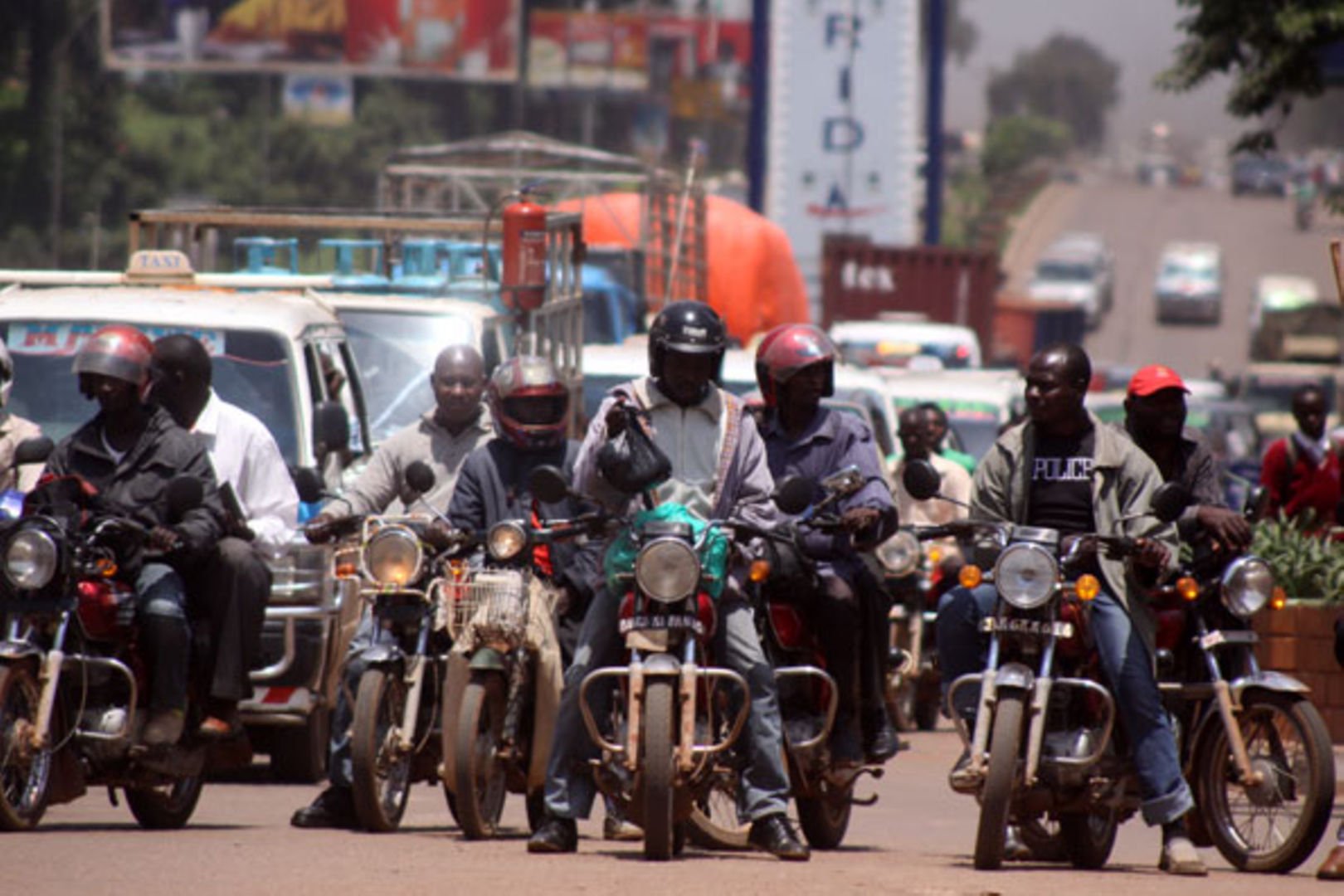Prime
Is politics fuelling boda boda chaos?

Although regulations are meant to help keep order, sometimes traffic officers face constraints while enforcing them. PHOTO | FILE
What you need to know:
- Traffic police officers say some motorcyclists in the business are untouchable and those (motorcyclists) without political connections suffer the consequences of the law as those who are connected ride away untouched.
During the launch of the national road safety week 2023 at Mestil Hotel, Kampala, in December 2023, Lawrence Nuwabiine, the Uganda Police director of traffic, said the biggest road traffic problem in Kampala is motorcycle risk and pedestrian vulnerability. He added that motorcycle menace constitutes 80 percent of registered road crash deaths.
Nuwabiine’s opinion was based on statistics that the traffic police directorate had registered in just 10 months, from January 2023 to October 2023. In this period, traffic police had registered 1,275 road crash deaths involving motorcyclists, while 513 were motorcyclist passengers. There were also 4,442 motorcyclists who sustained serious injuries and 2,568 motorcyclist passengers who sustained serious injuries.
“Because we are forced to carry out false diagnosis, there is a problem with organising motorcyclists. This starts from importation, to sale, ownership, licensing, training, operational space and safety education. Leadership has allowed manipulation and enforcement problems to persist,” Nuwabiine said.
“If you are to deal with the motorcycle problem, you need to look at it as a chain; from start to end. Any interventions should begin with building a database, which will guide decision making,” Nuwabiine added.
Nuwabiine’s sentiments do not differ from those of the former Kampala metropolitan (KMP) traffic commander, Rogers Kauma Nsereko.
“When you look at boda boda riders in Kampala, you may think they are suicidal. The situation is not getting any better even when we enforce proper riding laws every day,” Nsereko said, during the launch of the second Kampala annual road safety report at the Kampala Capital City Authority (KCCA) headquarters on April 5, 2023.
Where the problem starts
Away from traffic police, Moses Gyaviira, the vice chairperson of central region boda boda association argues that the continued politicisation of the boda boda sector has contributed to motorcyclists’ lawlessness, something that hinders enforcement by traffic police.
Gyaviira says some motorcyclists in the business are untouchable and that those (motorcyclists) without political connections suffer the consequences of the law as those who are connected ride away untouched.
“Whoever wants to start a political party or organisation targets boda boda associations. These are the same people (politicians) who insist that for boda boda riders to benefit from government programmes, they should form associations,” Gyaviira adds.
Factions
According to a former senior traffic officer, one of the many challenges hindering boda boda enforcement is the existence of many different motorcyclists’ factions and leaders. These are in most cases in support of or against enforcement ideas, for example motorcyclist’s registration and allocation of operational stages within the city.
“As traffic police, after long processes of consulting different stakeholders, including riders about matters such as targeting riders without licenses, different groups of stakeholders emerge from nowhere against the idea. There is also interference from leaders such as ministers, division and city mayors and members of parliament since everyone has interests in the industry,” the traffic officer says.
“During enforcement, once intercepted, the affected motorcyclists know where to run for protection. At the end of the day, traffic police does not achieve the intended objectives because they are not on the same page as everyone else involved. This disarms them and the boda boda problem persists,” the former traffic officer adds.
Bonny Balugaba, a researcher at Makerere University School of Public Health, argues that for as long as politicians continue to view motorcyclists as their voters and fight traffic police interventions to stop or reduce motorcyclist’s impunity, recklessness, motorcycle crashes and enforcement will remain a public health problem for years.
“During data collection, the engaged traffic personnel admitted that when traffic police carry out operations looking for motorcyclists without crash helmets, which is for their safety, some politicians de-campaign the operations because they believe it targets elimination of boda bodas from Kampala. This is on top of different political factions within riders. Until all parties come together to a consensus, we might not have effective safety interventions to improve motorcyclist safety,” Balugaba explains.
Much as political infiltration may not be directly responsible for the surge in motorcycle crashes, it instead hampers enforcement. If, for instance, police commences an operation where all riders must have reflector jackets and licenses and politicians are not in support of the idea, traffic police experiences enforcement challenges.
This means that politics may not directly influence motorcycle crashes but it interferes with enforcement, which in the long run influences rider behaviour, which subsequently escalates motorcyclist’s risk and vulnerability, not forgetting the motorcycle passengers.




